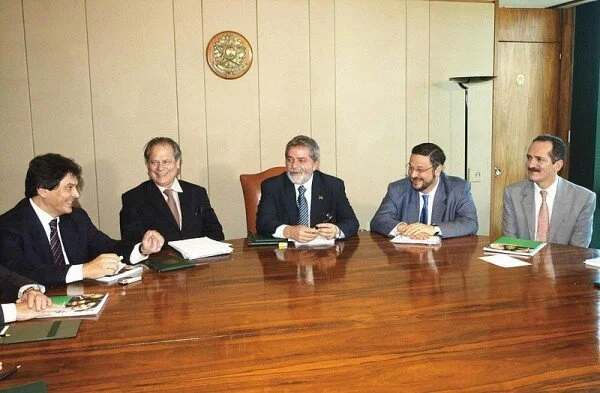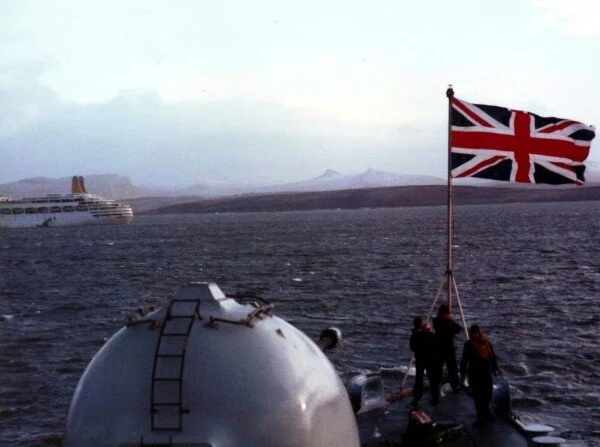South America
This piece explains how one nation’s clash with a social media giant reveals the complex balance between digital rights and democratic governance. The author concludes that democratic nations must develop coordinated international frameworks protecting national sovereignty and digital rights, with host countries like the United States taking the lead responsibility.
How can governments and funders combat the global education crisis caused by the COVID-19 pandemic? Piper O’Keefe argues that the key is to invest more resources in teachers—not simply ask more of them.
Jean Vilbert explores how Latin American governments can harness regulatory dynamism to attract foreign direct investment (FDI).
By looking to Argentina, the U.S. could improve its asylum system and greatly reduce its costs, argues Liam Comer-Weaver.
The Organization of American States is an important forum, but something needs to change, writes Ethan D. Ayala.
By Eliot Pence
Despite some economic progress, Colombia still faces critical challenges in managing its borders and countering illicit drug production. The U.S. should consider leveraging the next generation technologies to promote an effective partnership with Colombia.
By Loren Voss
There is a startling similarity across the globe in the language politicians and media organizations use to describe people fleeing for their lives. In response to a growing number of desperate and displaced people, the rhetoric coming from governments and newspapers is largely the same—these “others” threaten our beloved nation—letting them in would destroy its very foundation.
By Alex Defroand, Joshua Jacobs, Nelly Mecklenburg, Will Wright, Rebecca TeKolste, and Johannes Sosada
In our first ever podcast series, we talked with former presidential candidates, directors of major banks, academics, and journalists as we grappled with the implications of this year in politics and international affairs: Donald Trump’s election; Brexit; the ever-worsening humanitarian catastrophe in Syria; the refugee crisis; and the future of liberalism.
By Luis Ferreira Alvarez
Mercosur — a free trade and custom union formed in 1991 between Argentina, Brazil, Paraguay, and Uruguay (and later joined by Venezuela) — promotes the free movement of goods and people across the zone. Mercosur’s members have benefited from having integrated markets that expand their commerce. The South American bloc, like the European Union, can sign free trade agreements only as a bloc.
By Michael Darden
On November 5, 2015, a tailing dam in the state of Minas Gerais (in the southeast of Brazil) ruptured. It released an estimated fifty million tons of iron ore waste into neighboring areas. It has quickly become the country’s worst environmental disaster. Seventeen people were killed and entire towns were submerged by the thick toxic sludge, which seeped into the Rio Doce river basin, traveled downstream, and has begun to spill into the Atlantic Ocean.
By Luis Ferreira Alvarez
On April 21, 2015, an estimated half a million Brazilians took to the streets to call for President Dilma Rousseff’s impeachment over the billions embezzled from Petrobras (Brazil’s semi-public energy company). Yet President Rousseff did not even have to leave office to lose her power. Four days earlier, Rousseff gave her vice president, Michel Temer, who is from a different political party, control over her political agenda with Congress, effectively leaving her a lame-duck president with four years remaining in her second term. To regain control, Rousseff will need to focus her efforts on two priorities: lifting a stagnant economy and mitigating the fallout from Petrobras’ massive corruption scandal.
By Peter Oesterling
As anthropogenic climate change alters the world’s ecosystems, one effect has been glacial recession across the Andes, the Himalayas, the Alps, and the Rocky Mountains.
By Michael Reed Hurtado
The Colombian government says that security sector reform is off-limits at the peace talks with the Revolutionary Armed Forces of Colombia (FARC). The government may have its reasons, but that should not leave security sector reform off-limits for Colombian citizenry and the international community.
By Caterina Valero
Now is a time of hope in Latin America. Despite the global economic recession, Latin America has sustained an average economic growth rate of more than three percent since 2004.
By Caroline Conzelman
I explain here how I teach an international affairs course from an anthropological perspective, and I offer my views on why I believe professionals in business, development, government, the military, and elsewhere stand to gain from adopting anthropological methods and values.
By W. Alejandro Sánchez Nieto
In 1993, political scientist Samuel Huntington published a provocative article entitled “The Clash of Civilizations?” in Foreign Affairs.
By Lucas Bento
Lawyer Lucas Bento on Brazil's Trial of the Century: "Jose Dirceu, Chief of Staff to former Brazilian President Lula Inacio da Silva, is accused, along with another thirty-six top former government officials, lawmakers, and business executives of organizing a major vote-rigging scheme...the Mensalão" in light of Brazil's constant corruption struggle.”
By Dr. Inna Mattei and Gilles Van Nederveen
With the passing of the 30th anniversary of the Falklands War between the United Kingdom and Argentina this year, and the recent flaring up of tensions between the two nations over the status of the Falkland Islands, an examination of the current force structure in the South Pacific is needed to realistically assess military contingencies.
By Robert Valencia
Though FARC still poses some degree of threat to the Colombian population, the revolutionary force no longer has the clout it possessed decades ago. The deaths of its rank and file members, its dwindling military power, and mounting rejection from Colombians leave little option for FARC but to reach a peaceful yet uneasy end to the conflict. Otherwise, the Santos administration—and perhaps ensuing administrations—will continue using cutting-edge weaponry that has so damaged FARC while utilizing civilian means to encourage guerrilleros to leave the organization’s ranks and reintegrate into Colombian society.
An Interview with María Corina Machado on democracy in Venezuela.




















By Maria Santarelli
The United States should mitigate the suffering of Venezuelans within its own borders by granting Temporary Protected Status.